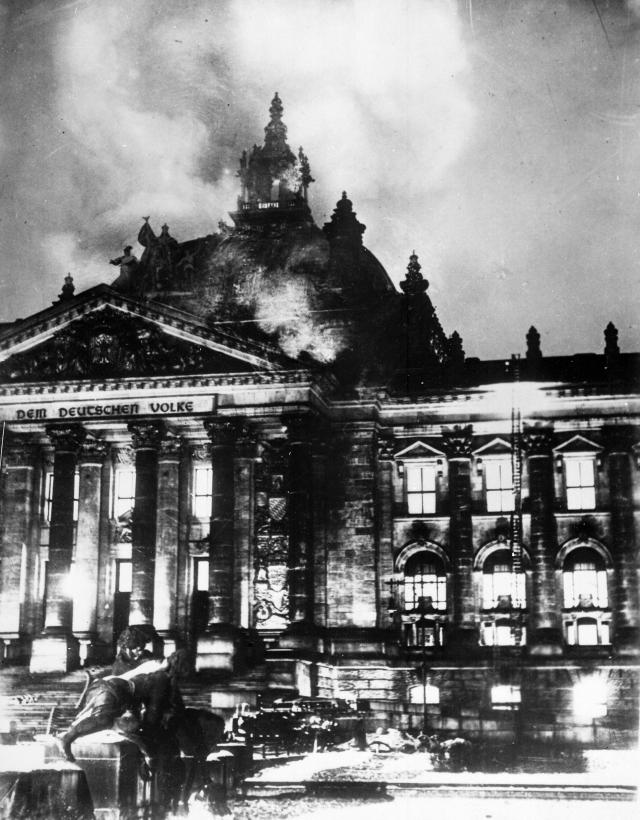Myths, Wartime Propaganda and the Burning of the Reichstag
From The Barnes Review, January, 1996. I wrote them and asked to reproduce this article, and never received a reply. So here it is, at least until they do answer me. - WRF
 By FRED BLAHUT
By FRED BLAHUT
If the burning of the German Reichstag brought the National Socialists to power in 1933, were the Nazis responsible for the arson? If not, who was?
By 1933, Germany was ripe for another revolution. The Moscow-backed communist revolutions of 1919 had been put down at awful cost. And then the Allies imposed "reparations" that stripped the country of its ability to employ its workers and feed its people, including a British-engineered blockade that resulted in the deaths of hundreds of thousands of Germans by starvation.
The worldwide depression of 1929 hit the country, still staggering under the yoke of the Treaty of Versailles, in the gut. Food was scarce. Jobs were disappearing. Those who had jobs earned money that was close to worthless.


























